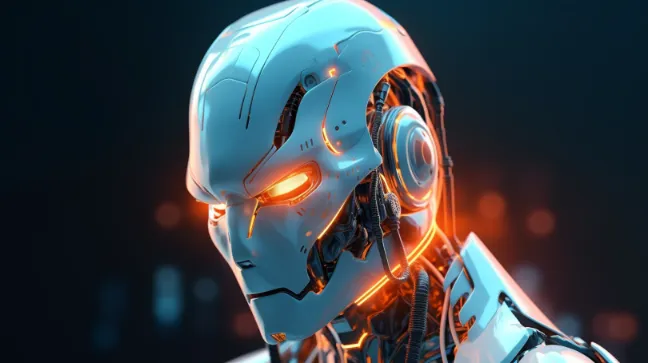Introduction
Imagine if every time you got a paper cut, a hundred-dollar bill magically appeared. Sounds like a pretty good deal, right? Well, consider Artificial Intelligence (AI) as that magical element. But instead of causing paper cuts, it’s boosting economic growth.
And instead of hundred-dollar bills, we’re talking about billions, even trillions of dollars. You’re likely scratching your head wondering, “How can AI and economic growth be related?”
Well, buckle up, folks, because we’re about to take a thrilling ride through the digitized landscapes of AI, exploring its profound impact on our economy. We’ll dig into the nitty-gritty of how AI is not just playing chess or recommending your next Netflix binge, but also driving massive economic growth.
With incredible advancements like labor productivity increase, cost-saving automation, and the birth of entirely new industries, AI is like Midas on steroids.
If you’ve ever found yourself contemplating, “How can AI and economic growth be related?” while showering or waiting for your coffee to brew, then you’re in for a treat.
We promise to unravel this puzzling link in a way that’s as enjoyable as your favorite sitcom, and hopefully, without the cliffhangers.
So, stay tuned to discover how AI is turning the world’s economic wheel faster than ever before. Let’s dive in, shall we?
Positive Impact of AI on Economic Growth
The adoption of AI technology has several positive effects on economic growth, including:
Increased productivity
AI technology can automate repetitive and time-consuming tasks, freeing up time for employees to focus on more complex and creative tasks. This increased productivity leads to more output and contributes to economic growth.
Job creation
While AI may displace some jobs, it also creates new job opportunities in fields like data analysis, AI development, and maintenance.
Improved efficiency in various industries
AI can optimize production and supply chain management, resulting in increased efficiency and reduced costs.
Enhanced customer experience
AI-powered chatbots and virtual assistants can provide instant customer support and personalized recommendations, leading to improved customer satisfaction and loyalty.
Negative Impact of AI on Economic Growth
However, the adoption of AI technology also has some negative impacts on economic growth, including:
Job displacement
AI technology has the potential to automate jobs, leading to job displacement for workers in certain industries.
Increased income inequality
The implementation of AI technology could widen the income gap between workers with technical skills and those without.
Ethical concerns surrounding AI
The use of AI technology raises ethical concerns such as privacy violations, bias, and lack of transparency.
Case Studies of Successful AI Implementation
AI has been successfully implemented in several industries, including:
Healthcare industry
AI technology is used for medical diagnosis, drug discovery, and patient monitoring, improving the quality of healthcare services.
Finance industry
AI is used for fraud detection, risk management, and investment analysis, resulting in more accurate and efficient financial services.
Manufacturing industry
AI is used for predictive maintenance, quality control, and supply chain optimization, leading to increased efficiency and reduced costs.
Future Implications of AI on Economic Growth
The adoption of AI technology is expected to continue to impact economic growth in significant ways, including:
Predictions for AI’s continued impact on the economy
AI technology is predicted to revolutionize industries such as transportation, education, and retail, leading to significant changes in the way we live and work.
Discussion of the potential consequences and challenges
However, the adoption of AI technology also poses challenges such as the need for new regulations and policies to address ethical and social concerns.
Conclusion
In conclusion, the adoption of AI technology has both positive and negative impacts on economic growth. While it increases productivity, creates new job opportunities, and improves efficiency, it also poses challenges such as job displacement, income inequality, and ethical concerns. As AI technology continues to evolve, it is important to consider its potential consequences and challenges while maximizing its benefits for economic growth.






